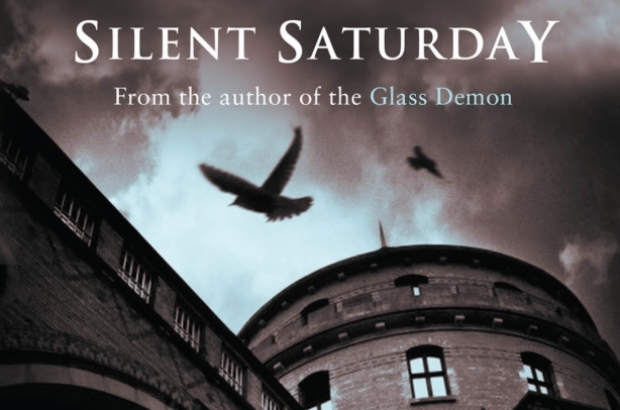- Daily & Weekly newsletters
- Buy & download The Bulletin
- Comment on our articles
Murder, mystery and mayhem
When Helen Grant lived in Bad Münstereifel for several years with her family, she fell in love with the local legends and folklore of the historic German spa town and used them to fuel her debut novel, The Vanishing of Katharina Linden.
Her next two equally ghoulish novels, The Glass Demon and Wish me Dead, were also inspired by her German surroundings.
Then she moved to Tervuren, just outside of Brussels in Flemish Brabant. “Over the three years that we lived in Flanders,” she says, “I came to admire Flemish culture very much. I love the cities of Antwerp and Ghent, especially Ghent perhaps, since you can really feel the history of the city when you walk around the streets. I enjoyed Flemish films, and I have become a big fan of the band Clouseau; I saw them in concert three times!”
Like in Germany, the Flemish countryside inspired her. Grant now calls Scotland home, but she has just published the first in a trilogy that takes place in Flanders. “When we moved to Flanders, I was ready to take a new direction,” she continues. “I liked that Tervuren was fairly near Brussels because it gave me an opportunity to write something more urban, a bit grittier, than the stuff I had done before, which was set in a small town.”
The title of her new book, Silent Saturday, the first in the Forbidden Spaces trilogy, came straight out of Dutch class. “Our teacher told us about Stille Zaterdag, when the church bells fall silent. Kids are told that the bells have flown away to Rome to collect Easter eggs from the Pope. I was fascinated by this story. I immediately thought that if I were a little Flemish kid, I would want to get into the bell tower of the church and see if this was true.”
This anecdote became the starting point for the book in which the heroine, Veerle, and her friend Kris decide to climb the tower of the local church and see whether the bells are there or not. The two children are disappointed to find that the bells are still there but take advantage of the opportunity to peer down at the village below. From this secret vantage point, they see something truly horrific happen.
The rest of the action takes place 10 years later when Veerle is a teenager, but the terrible events of that silent Saturday come back to haunt her.
Accurate portrait
For a temporary resident, Grant has created a surprisingly accurate portrait of the area, using real-life settings such as the number 44 tram, De Lijn buses and the Sonian Forest, not to mention the incorporation of the language divide in Belgium. In the book, Veerle’s mother is from Namur in Wallonia, and her father from Ghent.
“I’ve seen the Flemish-Walloon divide from both sides because I spent a lot of time in Wallonia in my younger days,” she explains. “Tervuren is Dutch-speaking, but if we made the 18-kilometre trip to Waterloo, we were in Wallonia, speaking French. So you do feel as though you have really crossed a border. My own personal experience was not that there was a lot of antagonism between the sides – more that there was a strong pride in Flemish culture in the area where we lived.”
In Silent Saturday, Grant also offers a look inside the lives of some Tervuren expats who reside in opulent villas – which the characters break into when the occupants are away. A realistic opportunity considering that most expats go away for two or three weeks during the summer holidays.
Well-paced
Silent Saturday is a well-paced gothic thriller with an eerie atmosphere and characters that are as interesting and intricate as the plot. Like many of Grant’s protagonists, Veerle is an adolescent because she likes the possibilities that are still open to them.
“If Veerle were older, she might think twice about the things she does with Kris. If she were 25 and had a job, she might not want to risk doing something illegal and being caught, perhaps losing her job as a result. I love the fact that she has a rebellious streak that life hasn’t worn away yet.”
Most of Grant’s work has been written in the first person; Silent Saturday is in the third.“ First-person writing can be great because it really allows you inside the head of the narrator. On the other hand, it means that you know that the narrator is going to survive to the end of the book, because they are telling the story! Silent Saturday moves away from that, so you can’t really be sure that Veerle is going to get to the end of the book, or indeed the trilogy, unscathed.”
The second book in the trilogy, The Demons of Ghent, will be published next year.
www.helengrantbooks.blogspot.be
This article was first published in Flanders Today


















